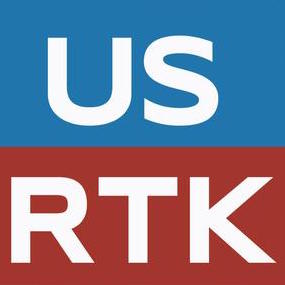
What Brands Need to Consider as Private Label Becomes More Prominent
Brands who ignore the surging growth of private label are doing so at their own peril.
In this newsletter, I outline 5 strategies to address the growing prominence of private label — reallocate resources to Amazon, invest more in Thrive Market, seek additional distribution channels, do not underestimate private label’s innovation, and be unique.
—
When it comes to the private label landscape, there are a few notable developments that have received a good deal of attention lately.
* Whole Foods is continuing its SKU rationalization, is adopting policies less friendly to smaller brands, and is still signing leases and plans to open up 5 more 365 stores this year. During a recent visit to the 365 store in Brooklyn, there were not multiple options for items such as mustard, ketchup and some oils. It was only 365 private label.
* Kroger recorded 2017 revenues of $2 billion for its Simple Truth natural and organic private label.
* Amazon has racked up $10 million in sales for 365 products in three months during 2017 and will continue to push this brand on its site.
With private label having such success with consumers, brands need to make sure that they are positioning themselves for this changing market dynamic. Here are five things to consider:
One – Boost Resources to Amazon
According to a study conducted by marketing firm Kenshoo,
* In the U.S., Germany, UK and France, 72% of shoppers now use Amazon to find products.
* 56% of these shoppers indicate that they usually look on Amazon first before looking at other sites.
* 51% of respondents indicate that if they see an interesting product on another site, they also look on Amazon to find alternative ideas and to compare prices.
Combine that with the fact that 365 Everyday Value brand and AmazonBasics are the two top-selling grocery items on Amazon, brands need to be dedicating resources to Amazon, in terms of search optimization, reviews, pictures. Everything.
These statistics from Kenshoo are absolutely staggering and show just how dominant Amazon has become for online shopping.
Two – Build a Relationship with Thrive Market
While Thrive Market may not have the size or scale of an Amazon, it is building an incredibly loyal and growing customer base because of its commitment to high quality organic and Non-GMO items and its shared values with organic consumers. Furthermore, Thrive Market’s position in the e-commerce world is only going to get stronger.
While Thrive Market’s private label products may compete directly with other branded products on the site, which may appear to put them in an adversarial position, this is not necessarily the case.
“It’s always a little tenuous working with brands but for us, it’s all about transparency and honesty. We reach out to brands when launching a private label to see if they want to bid on the private label business, to work together in the supply chain, to share on volume to help farmers, or to discuss other ways that we can help differentiate their brand, such as coming up with a new snack item. Ultimately, our goal is to broaden access for everyone,” said Jeremiah McElwee, SVP of Merchandising and Product Development at Thrive Market.
“Interestingly, when we launch private label, it has been incremental, and we have not seen a tremendous amount of cannibalization. Private label sales do outpace branded sales, but branded sales don’t fall off the cliff. The brands aren’t getting crushed. Some are even rising,” he continued.
Three – Look for Alternative Distribution Channels
It is essential to no longer soley rely on traditional distribution channels.
While everyone understands the importance of e-commerce, some savvy brands are thinking outside the box to get their products to consumers. Back to the Roots has been wildly successful selling into schools, Cargo is now selling snacks in Uber cars, and as I have written about in a previous Organic Insider newsletter, I believe there is a major opportunity at gas stations.
Four – Do Not Underestimate Where Private Label Will Go
If you think that private label is only going to stick to commodity items, such as coconut oil, chia seeds and peanut butter, and that you don’t need to be too concerned, that is a mistake.
Whole Foods offers its own line of sparkling drinking vinegars, which demonstrates just how on-trend this private label is attempting to become.

Additionally, 7-11 has launched its own pressed organic juice line under 7-Select, which contains superfoods such as acai, bilberry, and tart cherry.

The reality is that private label is going to get more innovative and sophisticated as time goes on, and no one should be surprised to see private label Biodynamic in the near future.
Five – Convey Your Value and Be Different
At the end of the day, consumers are going to develop loyalty because the brand stands for something they believe in and is offering a unique or superior product.
“New brands more than ever need to offer something proprietary AND transformative that the private label folks can’t do well. GT’s Kombucha is a great example. They created a category and make a high-quality product that is difficult to replicate. Trader Joe’s recognized this and made the move to carry them over their own brand. It’s a good case study for other emerging companies to learn from. Be transformative, proprietary, and build out an obsessed consumer following. Firing on all three of those cylinders is the pathway to total world domination — much easier said than done,” said Greg Fleishman, CEO and Co-Founder of Purely Righteous Brands.
—
While private label is definitely great for consumers, in terms of getting organic into more people’s hands, it also has the unnerving potential to diminish the integrity of organic because of the tremendous pressure to cut costs. This is a reality that we cannot forget.
*******
QUOTE OF THE WEEK
“We’re determined to make healthy and organic food affordable for everyone,” said Jeff Wilke, CEO of Amazon worldwide consumer. “Everybody should be able to eat Whole Foods Market quality. We will lower prices without compromising Whole Foods Market’s long-held commitment to the highest standards.”
Let’s remember this.
 |
Have a great day! 
Max Goldberg, Founder |
Quick Hits
* Urge your Senators to support the organic cost-share program. Click HERE to have your voice heard.
* Despite the fact that Clif Bar has been incredibly problematic with the whole hydroponics in organic issue — Clif Bar voted against the recommendation to ban it in organic — the company played a lead role in funding a $1.5 million organic endowment for Washington State University’s Bread Lab.
* The Green Street LIC, an organic, gluten-free Korean restaurant in Long Island City (NYC), is one place that I definitely need to check out.
Weekly News Summaries

MUST-READ: New Technology Could Improve Transparency in the Organic Dairy Industry
By Joe Fassler
Fluorescence spectroscopy technology developed at Iowa State University could be a game-changer in the organic dairy industry by helping to prove which cows were actually grazing outside and which ones were not.

U.S. Right to Know Attacks the Credibility of Newsweek and its Slam Piece on Organic
By Stacy Malkan
In this op-ed, U.S. Right to Know's Stacy Malkan takes aim at the bizarre standard for opinion writers at Newsweek.

Kroger Surpasses $1 Billion in Organic Produce Sales
Kroger sold $1 billion of organic produce at its nearly 2,800 stores throughout the U.S.


Farmers Sue Monsanto, Saying They are Forced to Buy its GMO-Corn and Soybean Seeds
By Eleanor Tyler
Because of the damage that dicamba has caused, which has forced farmers to purchase Monsanto's GMO-corn and soybean seeds, a treble damages class action suit has been filed against the company.

Canada's GMO-Apple Producer Aims to Have $1B in Sales by 2030
By Glenn Korstrom
Okanagan Specialty Fruits, the maker of genetically-engineered apples, hopes to generate US$1 billion in sales by 2030, buoyed by the Canadian government just approving its third variety of GE-apples.

Iowa Citizens Call for a Moratorium on New and Expanding CAFOs
With more than 23 million hogs producing 10 billion gallons of liquid manure a year in the state, Iowa citizens are calling for a ban on new and expanding CAFOs, out of fear for their water quality, among many other things.


Amazon Pledges to Fix the Empty Shelves Issue at Whole Foods
By Hayley Peterson
Amazon has vowed to rectify the empty shelves problem, which many employees say was a policy put into place before the company took control of Whole Foods.

Harmless Harvest Raises $30M to Continue Expansion
By Elizabeth Crawford
In a $30M round led by Danone Manifesto Ventures, Mousse Partners and AccelFoods, Harmless Harvest will use the funds to continue its growth and to have a positive social impact on the Thai communities from where it sources its coconuts.
The material in this newsletter is copyrighted and may be reprinted by permission only. All requests must be in writing. Please use our contact form to request republication rights.
Newsletter Archive
Quick Hits
* Urge your Senators to support the organic cost-share program. Click HERE to have your voice heard.
* Despite the fact that Clif Bar has been incredibly problematic with the whole hydroponics in organic issue — Clif Bar voted against the recommendation to ban it in organic — the company played a lead role in funding a $1.5 million organic endowment for Washington State University’s Bread Lab.
* The Green Street LIC, an organic, gluten-free Korean restaurant in Long Island City (NYC), is one place that I definitely need to check out.
